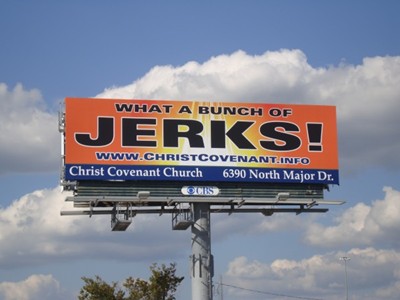Yesterday, the LA Times published a thought-provoking commentary about disaffection with church among young people and the reasons behind it. Twenty years ago, only 7% of Americans claimed no religious affiliation, and that wasn’t a surprising number. We were a nation of churchgoers, and that had been a steady statistic for decades.
But since then, that number of religious Americans has been steadily dropping, and today, 17% of Americans say they don’t have a religious affiliation. What caused the increase? It’s primarily the new crop of adults — my generation and younger — who have come of age since 1990. According to the article, “between 25% and 30% of twentysomethings today say they have no religious affiliation — roughly four times higher than in any previous generation.”
The fact that new generations are less churched than previous generations isn’t exactly newsworthy, but the conclusion of the article IS. Here’s the kicker:
So, why this sudden jump in youthful disaffection from organized
religion? The surprising answer, according to a mounting body of
evidence, is politics. Very few of these new “nones” actually call
themselves atheists, and many have rather conventional beliefs about God
and theology. But they have been alienated from organized religion by
its increasingly conservative politics.
Though millennials remain more uneasy about abortion than their parents, younger generations have moved to the left on social issues like homosexuality and same-sex marriage. The church is more entrenched than ever on those issues, and though it has boosted Republican political turnout, it has alienated the young moderates and progressives of the church:
Increasingly, young people saw religion as intolerant, hypocritical,
judgmental and homophobic. If being religious entailed political
conservatism, they concluded, religion was not for them.
The LA Times piece, written by Robert D. Putnam and David E. Campbell, serves as an introduction to their new book, American Grace: How Religion Divides and Unites Us. They conclude that the contemporary relationship between religion and politics — especially as it relates to homosexuality — is the “single strongest factor” in this statistical uptick in young, non-religious Americans.
Questions for discussion:
• Have you seen this shift in your life and/or church affiliation? Do you know people who are abandoning the Church because of their politics (or its politics)?
• What will this shift mean for the future? Many churches worry about the moral impact of accepting homosexuality within mainstream Christianity. But do you think the church’s stance against it — and its increasing ties to conservative politics — could actually end up damaging the influence of religion in our culture?
What do you think?

